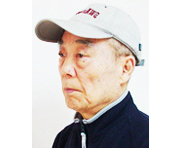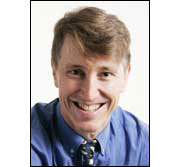“Nothing in biology makes sense except in the light of evolution,” wrote Theodosius Dobzhansky, (1900–1975), a prominent geneticist and evolutionary biologist.
Then what is evolution? Simply in layman’s terms, it’s the gradual development of living things over time or change, i.e. a process of something passing from one state into another. The living thing is a life born from life, gets energy from the outside world, conducts metabolism, grows up, and produces another identical living matter. Dog is born from dog, magpie produces magpie and a salmon produces its own fish. And, every living thing changes, nothing is permanent and there are no exceptions.
Despite the fact that everything dies, living things are still everywhere and that’s because new and changed substitutes are being born. Mountains and rocks don’t produce other mountains or rocks but they remain there in silence because they don’t have to die, so they don’t have to change. Living things produce future generations through genetic synthesizing and let older generations disappear.
Interestingly, genetic synthesizing in life isn’t always perfect and it makes mistakes. Parents’ sperm and egg cells create new life by joining together so that the new life isn’t exactly the same as its father or mother. Brothers and sisters aren’t exactly the same because individual variations in the gene recombination work differently.
If there was no change in the gene sequencing in living things and the reproduction was exact without errors or changes, there would have been no evolution in life. There have been various changes in a long period of time and lives have evolved and developed over time.
It is assumed that the earliest life was a simple single celled matter that lived in the sea, estimated to have existed over three billion years ago. That’s too long a time ago for us to imagine so let’s try to reduce a billion years into a single year.
In this time frame, the Earth was born on January 1, there was no life until April 8 but a form of simple cell life began to show up on Nov. 1. The first fish appeared on the afternoon of Nov. 26, and then the dinosaurs were born sometime between Nov. 9 and 26. On Nov. 25 monkeys were born and humans showed up at 8:10 p.m. on Dec. 31. (From “What’s evolution” by Mariko Hasegawa, 2010)
Now let’s get back to the present. President Barrack Obama was elected with the slogan “Change we can believe in” and he revived his 2008 slogan again this year, and was re-elected for a second term. “I know what change looks like because I’ve fought for it,” Obama said in his campaign speech. “Governor Romney has been using all his talents as a salesman to dress up these very same policies that failed our country so badly ― the very same policies we’ve been cleaning up after for the past four years ― and he is offering them up as change,” Obama said. “Well, let me tell you, we know what change looks like. And what the governor is offering sure ain’t change.”
Professor Ahn Cheol-soo enjoyed wide support from highly-educated people, but had to withdraw from the Korean presidential race. His flag lacked distinctive colors and he never said in clear and strong words that this election is a choice between the status quo and real change ― change that offers a promise that the future will be better than the past. He is a medical doctor and surely knows Dobzhansky’s evolutionary theory that living things change, nothing is permanent, and no living things can survive if they remain unchanged.
China has greatly changed, and successfully, reforming its economy under the slogan “Socialism with Chinese characteristics” that started in December 1978 by reformists led by Deng Xiaoping. Japan is changing its Self Defense Force to Military Forces by changing its Constitution.
The new president of Korea shouldn’t be worrying about making mistakes in changing the nation’s roadmap because if we don’t change, we’ll be on the road to collapse, and the mistakes as in genetic synthesizing are part of changes we’d need eventually. <The Korea Times/Nam Sang-so>




